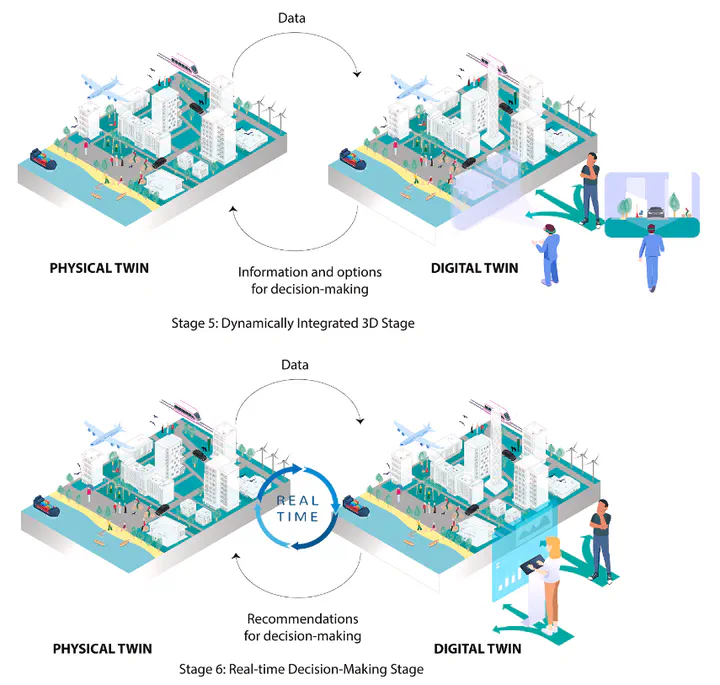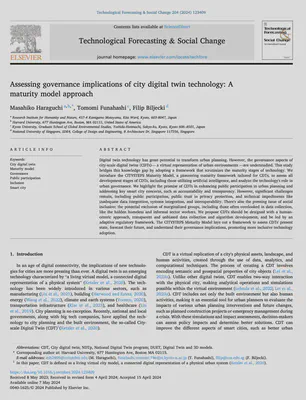New paper: Assessing governance implications of city digital twin technology: A maturity model approach
Technological Forecasting and Social Change publishes our collaborative paper that presents a classification of urban digital twins with respect to their technological maturity.

We are glad to share a new collaborative paper:
Haraguchi M, Funahashi T, Biljecki F (2024): Assessing governance implications of city digital twin technology: A maturity model approach. Technological Forecasting and Social Change 204: 123409. 10.1016/j.techfore.2024.123409 PDF
This research was led by Masahiko Haraguchi from Harvard University.
The paper is available freely until 2024-06-26.
Highlights
- Our maturity model assesses the different development stages of city digital twins.
- We identify opportunities and impediments to better governance.
- City digital twin technologies can enhance public participation in urban planning.
- The technologies can resolve smart cities’ long-standing challenges.
- Challenges remain, including interoperability, participation, and inclusivity concerns.
Abstract
Digital twin technology has great potential to transform urban planning. However, the governance aspects of city-scale digital twins (CDTs)— a virtual representation of urban environments —are understudied. This study bridges this knowledge gap by adopting a framework that scrutinizes the maturity stages of technology. We introduce the CITYSTEPS Maturity Model, a pioneering maturity framework tailored for CDTs, to assess all development stages of CDTs, including those utilizing artificial intelligence, and analyze the technology’s role in urban governance. We highlight the promise of CDTs in enhancing public participation in urban planning and addressing key smart city concerns, such as accountability and transparency. However, significant challenges remain, including public participation, public trust in privacy protection, and technical impediments like inadequate data integration, systems integration, and interoperability. There’s also the pressing issue of social inclusion: the potential exclusion of marginalized groups, including those often overlooked in data collection, like the hidden homeless and informal sector workers. We propose CDTs should be designed with a human-centric approach, transparent and unbiased data collection and algorithm development, and be led by an adaptive regulatory framework. The CITYSTEPS Maturity Model lays out a framework to assess CDTs’ present state, forecast their future, and understand their governance implications, promoting more inclusive technology adoption.
Paper
For more information, please see the paper.
BibTeX citation:
@article{2024_tfsc_dt_maturity,
author = {Haraguchi, Masahiko and Funahashi, Tomomi and Biljecki, Filip},
doi = {10.1016/j.techfore.2024.123409},
journal = {Technological Forecasting and Social Change},
pages = {123409},
title = {Assessing governance implications of city digital twin technology: A maturity model approach},
volume = {204},
year = {2024}
}
